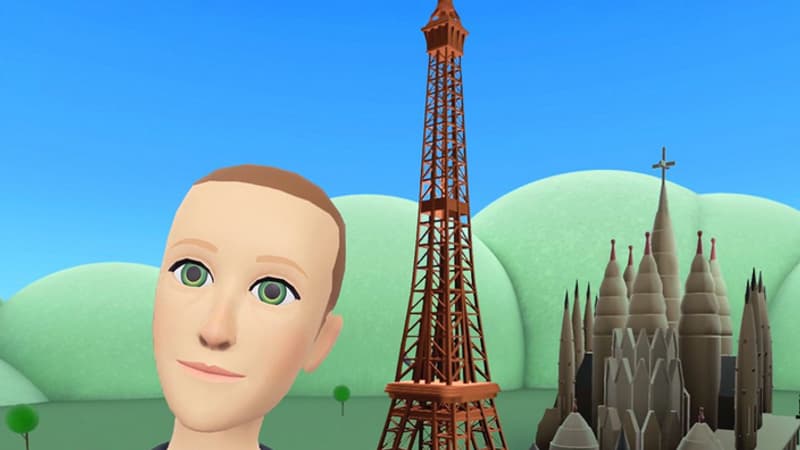“The metaverse is certainly virtual, but the impact will be real.” Meta (parent company of Facebook and Instagram) presented this Monday, September 5, a European campaign that presents the “economic and social opportunities of the metaverse”. The company, which has made the metaverse its workhorse, seems to want to reassure its users -and its investors- about the real impact of this virtual universe, whose contours are still vague.
another ten years
Meta called in a consulting firm to produce a white paper of his metaverse. First noteworthy point, Meta is aware that metaverse technology is still in its infancy: “much of what we envision for the metaverse is still a decade away and requires collaboration across industries and with experts, academics, civil society, governments and regulators”. for this to happen,” the post read.
big ambitions
The company mentions different sectors that could benefit from the concept, such as entertainment, education, health or even sales. More specifically, it mentions the possibility of “training health professionals”, learning in 3D as “no blackboard or flat screen can do it”, or even, more ambitiously, “destroying the geographical barrier”. So many practices closely linked to the adoption of virtual reality headsets.
As for the definition of the metaverse, which remains unknown to part of the general public, Meta gives some constitutive elements: mixed reality, augmented reality, virtual reality, blockchain or even NFT. A jumble of “web3” technologies, some of which are already worrying investors.
Meta has never hidden its ambition for the metaverse, and the company has been in the abyss for several months now. At the end of August, the arrival in France and Spain of Horizon Worlds was also celebrated, the social and virtual platform of Facebook (not translated into French and Spanish), which was the target of ridicule for its elemental graphics. A week later, Vivek Sharma, head of Horizon Worlds, jumped ship.
Source: BFM TV


